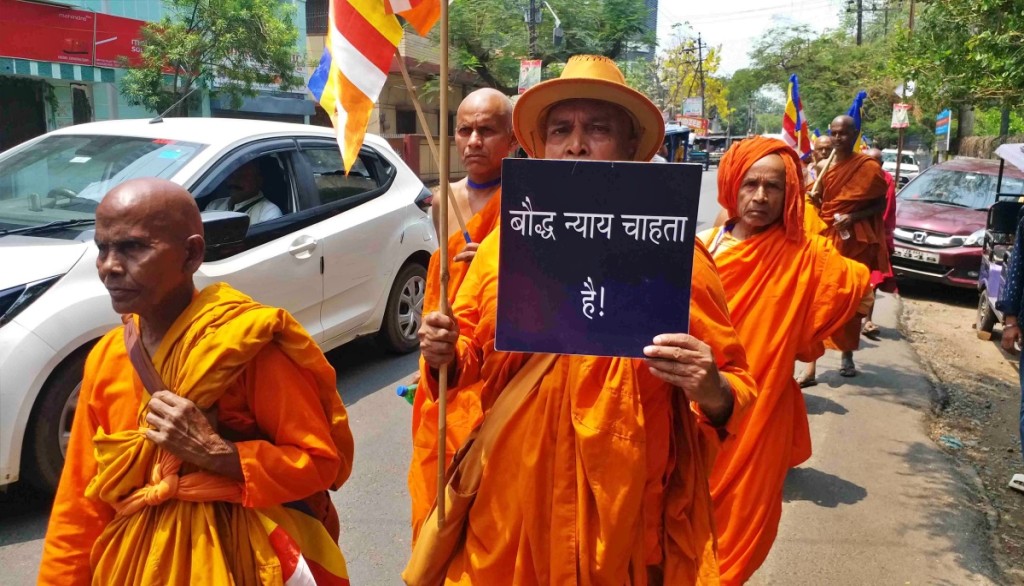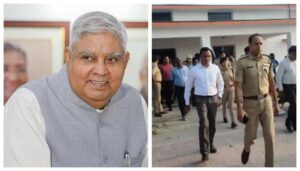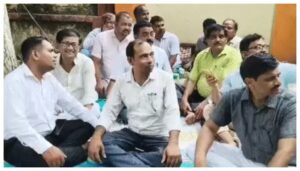
Bodh Gaya: Hundreds of Buddhist monks from across India have begun a protest march from Bodh Gaya to Patna, demanding the repeal of the Bodh Gaya Temple Act 1949 and full control of the Mahabodhi Temple. The protest follows 82 days of continuous sit-ins near the sacred site where Gautama Buddha is believed to have attained enlightenment.
The monks argue that the Act unjustly includes members of the Hindu community in the Bodh Gaya Temple Management Committee (BTMC), thereby denying Buddhists exclusive authority over one of their most sacred shrines. “No religious site in the world is run by people from another faith,” said Akash Lama, General Secretary of the All India Buddhist Forum, who is leading the march.
The BTMC, established in 1953 under the 1949 Act, includes both Buddhist and Hindu representatives. The state government nominates its members. At present, of the seven-member committee, four are Buddhists and three are from the Hindu community.
Protesters have been staging a sit-in at Domuhan near the temple since 12 February 2025, initially beginning with a hunger strike. With little government response, they have now decided to take their message directly to Chief Minister Nitish Kumar in Patna. The march is expected to reach the capital by the night of 5 May, with a request for an audience with the CM on May 6.
The monks plan to invite Kumar to attend Buddha Purnima celebrations, which they say will draw over 300,000 devotees this year. They hope his presence will also bring attention to their longstanding demand.
The issue, they point out, is not new. Buddhist organisations have been raising concerns about the Act since the 1890s, with the matter even being discussed during the 1922 Indian National Congress session in Gaya. The Mahabodhi Temple Bill was eventually passed by the Bihar Assembly in 1948, giving rise to the current structure.
International Buddhist organisations and diplomats from countries like Sri Lanka, Thailand, and Laos have extended moral support to the protest, according to organisers. The monks argue that religious self-determination is a universal principle that should apply to Bodh Gaya as well.
“This is not just a protest—it’s a spiritual movement. We will continue until we regain full custodianship of our holiest site,” said Bhante Mahan, a monk from Nagpur who is part of the foot march.
The Bihar government has not yet responded formally to the monks’ latest appeal. With the 2025 Bihar elections looming, the issue could add a sensitive layer to the state’s political landscape.





